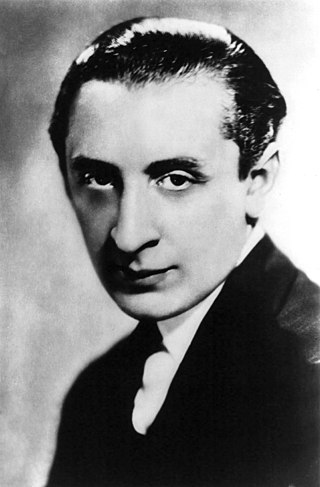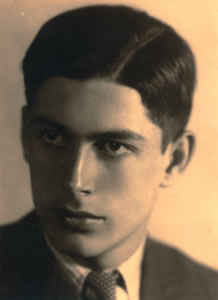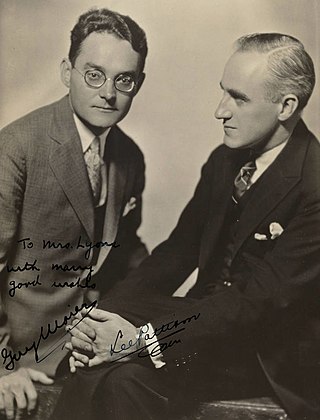Related Research Articles

Sergei Vasilyevich Rachmaninoff was a Russian composer, virtuoso pianist, and conductor. Rachmaninoff is widely considered one of the finest pianists of his day and, as a composer, one of the last great representatives of Romanticism in Russian classical music. Early influences of Tchaikovsky, Rimsky-Korsakov, and other Russian composers gave way to a thoroughly personal idiom notable for its song-like melodicism, expressiveness, dense contrapuntal textures, and rich orchestral colours. The piano is featured prominently in Rachmaninoff's compositional output and he used his skills as a performer to fully explore the expressive and technical possibilities of the instrument.

Sviatoslav Teofilovich Richter was a Soviet and Russian classical pianist. He is regarded as one of the greatest pianists of all time, and has been praised for the "depth of his interpretations, his virtuoso technique, and his vast repertoire".

Vladimir Samoylovich Horowitz was a Russian and American pianist. Considered one of the greatest pianists of all time, he was known for his virtuoso technique, timbre, and the public excitement engendered by his playing.

Walter Wilhelm Gieseking was a French-born German pianist and composer. Gieseking was renowned for his subtle touch, pedaling, and dynamic control—particularly in the music of Debussy and Ravel; he made integral recordings of all their published works which were extant during his life. He also recorded most of Mozart's solo piano works.

Gideon Klein was a Czechoslovakian pianist, classical music composer, educator and organizer of cultural life at Theresienstadt concentration camp. Klein was murdered in the Holocaust.

Eduard Steuermann was an Austrian-born American pianist and composer.

Leonid Kreutzer was a classical pianist.
Bernhard Heiden was a Jewish emigre from Nazi Germany and a German-American composer who taught as a professor at the Indiana University School of Music from 1946 until his retirement in 1981.

Alexander Frey, KM, KStJ, is an American symphony orchestra conductor, virtuoso organist, pianist, harpsichordist and composer. Frey is in great demand as one of the world's most versatile conductors, and enjoys success in the concert hall and opera house, and in the music of Broadway and Hollywood. Leonard Bernstein referred to him as "a wonderful spirit".
Michael Head, FRAM was an English composer, pianist, organist and singer who left some enduring works still popular today. He was noted for his association with the Royal Academy of Music. His compositional oeuvre mainly consists of songs, as well as choral works and few larger-scale pieces such as a piano concerto.

Isidor Edmond Philipp was a French pianist, composer, and pedagogue of Jewish Hungarian descent. He was born in Budapest and died in Paris.

Abraham Alexander Schneider was a violinist, conductor and educator. Born to a Jewish family in Vilnius, Lithuania, he later moved to the United States as a member of the Budapest String Quartet.

Russell Sherman was an American classical pianist, educator and author. He performed internationally, known especially for playing the music of Beethoven and Liszt. Driven by a "lifelong battle to reconstitute Liszt as a serious composer", he wrote for a recording of his Transcendental Études: "The poetic idea is central, and the virtuoso elements become so many layers to orchestrate the poetic content".

Daniil Olegovich Trifonov is a Russian pianist and composer. Described by The Globe and Mail as "arguably today's leading classical virtuoso" and by The Times as "without question the most astounding pianist of our age", Trifonov's honors include a Grammy Award win in 2018 and the Gramophone Classical Music Awards' Artist of the Year Award in 2016. The New York Times has noted that "few artists have burst onto the classical music scene in recent years with the incandescence" of Trifonov. He has performed as soloist with such orchestras as the Philadelphia Orchestra, New York Philharmonic, Cleveland Orchestra, Royal Philharmonic Orchestra, London Symphony Orchestra, Mariinsky Theatre Orchestra, Royal Concertgebouw Orchestra, Berlin Philharmonic, San Francisco Symphony, Montreal Symphony Orchestra, Houston Symphony and the Munich Philharmonic, and has given solo recitals in such venues as Royal Festival Hall, Carnegie Hall, John F. Kennedy Center for the Performing Arts, Berliner Philharmonie, Théâtre des Champs-Élysées, Concertgebouw, and the Seoul Arts Center.

Guy Maier was an American pianist, composer, arranger, teacher, and writer. From about 1919 to 1931, he was a member of the two-piano team of Maier and Pattison.

William Baines was an English pianist and composer who wrote more than 150 works for solo piano and a number of larger orchestral works before his early death from tuberculosis at the age of 23.

Isidor Yulyevich Achron was an American pianist, composer and music teacher.
Denes Agay was a Hungarian-born American composer, educator, arranger and author. He compiled the million-selling music collection Best Loved Songs of the American People (1975).
James Friskin was a Scottish-born pianist, composer and music teacher who relocated to the United States in 1914.

Richard Strauss composed his Cello Sonata in F major, Op. 6, TrV 115, in 1883 when he was 19 years old. It was dedicated to the Czech cellist Hanuš Wihan, who gave the premiere in 1883. It rapidly became a standard part of the cello repertoire.
References
Adapted from an essay by Juan Allende-Blin in the booklet notes of Cybele SACD 160.403.
- ↑ Jean-Marc Chouraqui, Gilles Dorival, Colette Zytnicki, Enjeux d'Histoire, Jeux de Mémoire: les Usages du Passé Juif, Maisonneuve & Larose, 2006, p. 548
- ↑ "Erich Itor Kahn Is Dead at 50; Pianist With Chamber Groups" New York Times (March 6, 1956)